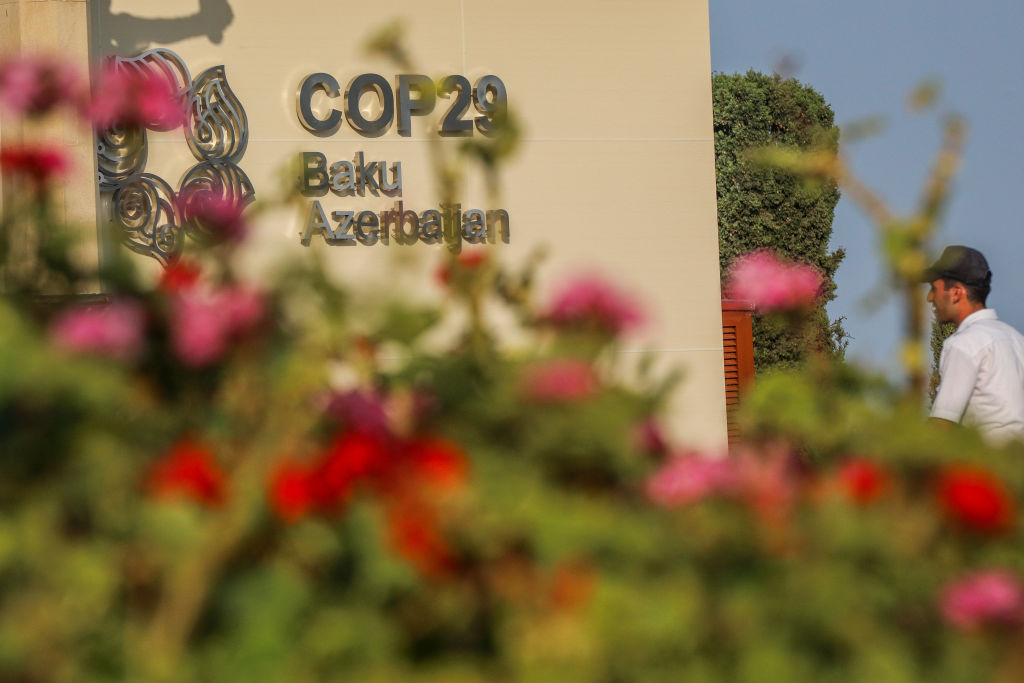With attention focused on the Middle East and Ukraine, it’s unsurprising that developments in the South Caucasus haven’t attracted wider attention. Yet major geopolitical shifts are underway in this strategically located region. Some of this will become increasingly apparent as the eyes of the world swing to Azerbaijan as host of the upcoming COP29 climate change talks.
Historically, the South Caucasus has been the contested crossroads between large imperial powers – Russia, Persia and the Ottoman Empire.
And so it remains.
Throughout late Tsarist and Soviet times, the South Caucasus fell within Moscow’s sphere of influence. But since 1991, Georgia, Armenia and Azerbaijan have charted their own distinctive courses. Georgia has largely tilted towards the West, especially since the 2003 Rose revolution, pursuing closer security and economic integration with NATO and the European Union respectively. At the same time, Tbilisi’s relations with Moscow steadily cooled under the Saakashvili administration, reaching a nadir in the 2008 war, leading to Russia’s seizure of Abkhazia and South Ossetia – about 20 per cent of Georgia’s territory.
Georgian political and business elites retain close informal ties to Russia, despite diplomatic relations remaining in abeyance.
Armenia, by contrast, remained close to Russia, bound by dependent economic (trade and energy) and defence ties (part of Moscow’s Collective Security Treaty Organisation), underpinned by extensive people-to-people and elite connections. Yerevan saw its alliance with Moscow as offering security against its hostile neighbours, Azerbaijan and Türkiye.
Meanwhile, Azerbaijan has largely pursued a pragmatic foreign policy. Baku sought to leverage its strategic geographic location and massive energy resources to balance traditional links to Moscow with expanding partnerships with Western states, and also stronger ties with Middle East partners, especially its ethnic compatriot, Türkiye.
But changes are now afoot in all three South Caucasus countries.

Despite gaining EU candidate status last year, Georgia is moving away from the West and tilting back towards Moscow. Georgian politics is highly polarised. Public antipathy towards Russia remains deep: polls suggest the Georgian public remains markedly in favour of closer EU integration. Yet Georgian political and business elites retain close informal ties to Russia, despite diplomatic relations remaining in abeyance. The long-ruling Georgian Dream party, led by shadowy tycoon Bidzina Ivanishvili, is taking an increasingly illiberal line domestically. It has cracked down on dissent, and pushed through parliament a foreign interference law, based closely on Russia’s, attracting much domestic opposition, and criticism from the European Union and United States. Tbilisi’s decision to award a new deep-sea port contract on the Black Sea to a Chinese company has also attracted the West’s suspicion. In this divisive environment, the October parliamentary elections could prove a tinder-box.
Armenia is moving the other way, seeking greater economic integration with the European Union, and closer security ties with NATO. This process actually began back in 2018 with the election of populist democrat Nikol Pashinyan, which prompted apprehension in Moscow about a Ukraine-style democratic revolution in Armenia.
But the real turning point came in late 2020 with Azerbaijan’s surprise attack on the contested Armenian enclave of Nagorno-Karabakh, held since 1991 by Yerevan but never accepted by Baku. While a Moscow-brokered ceasefire and insertion of Russian peacekeepers ended the fighting, Armenia’s disappointment at Moscow’s equivocal response was palpable. This dissatisfaction was compounded last September by Azerbaijan’s lightning seizure of all of Nagorno-Karabakh, while Russian peacekeepers stood by, leading to the enforced exodus of some 100,000 Armenian Karabakhi.
Strategic and pragmatic considerations are now also driving Moscow and Baku together.
Behind this decisive shift in the balance of power between Azerbaijan and Armenia lies Baku’s steadily growing political and military clout, enabled by its energy wealth. This was coupled with a shift in Russia’s strategic priorities, away from Armenia towards Azerbaijan, partly prompted by the economic pressures of its war in Ukraine.
Internationally, Azerbaijan has become more assertive, notably as recent Chair of the Non-Aligned Movement (2019-2023). Baku has retaliated against Paris’s staunch support for Armenia by supporting separatism in French overseas territories, including New Caledonia.
Baku has greatly strengthened its military capabilities, aided by Türkiye: Ankara is eager to expand its regional influence, and is increasingly a key customer for Azeri gas. Meanwhile, Azerbaijan has been vigorously exploiting its strategic crossroads location, positioning itself as a major transport hub, first for east-west connectivity, but also now for north-south links.
This provides a convergence of interests between Russia and Azerbaijan. Elite ties have always been close: strongman President Ilham Aliyev, now in his fifth term, is the son of former long-serving Soviet party boss in Azerbaijan, Heydar Aliyev.
But strategic and pragmatic considerations are now also driving Moscow and Baku together. Moscow is keen to develop alternative transport links replacing trade routes via Europe, now curtailed by Ukraine war sanctions. Azerbaijan offers possible road and rail connections through to Russia’s partners Türkiye and Iran, and to the wider world.
Meanwhile, bilateral peace talks grind on between Azerbaijan and Armenia, but an increasingly confident Baku holds the upper hand. Besides formalising the new border, Baku seeks an access corridor through Armenia to its exclave of Nakhchivan, bordering Türkiye and Iran. If Baku doesn’t get what it wants by negotiation, some fear it will take it by force. Moscow is again unlikely to intervene to support Armenia, its nominal ally.
Yerevan is in an invidious position. While keen to develop closer ties with the West, it can’t afford to alienate Moscow, as it remains heavily dependent on Russia in trade and energy. Moreover, Russia retains a significant military presence: its troops still guard Armenia’s borders with Türkiye and Iran.
Once more, then, the South Caucasus is a contested – and increasingly congested – geopolitical space, with Russia, Türkiye and Iran vying for influence, jostling alongside Western states and China. Expect more twists and turns in this complex region.

